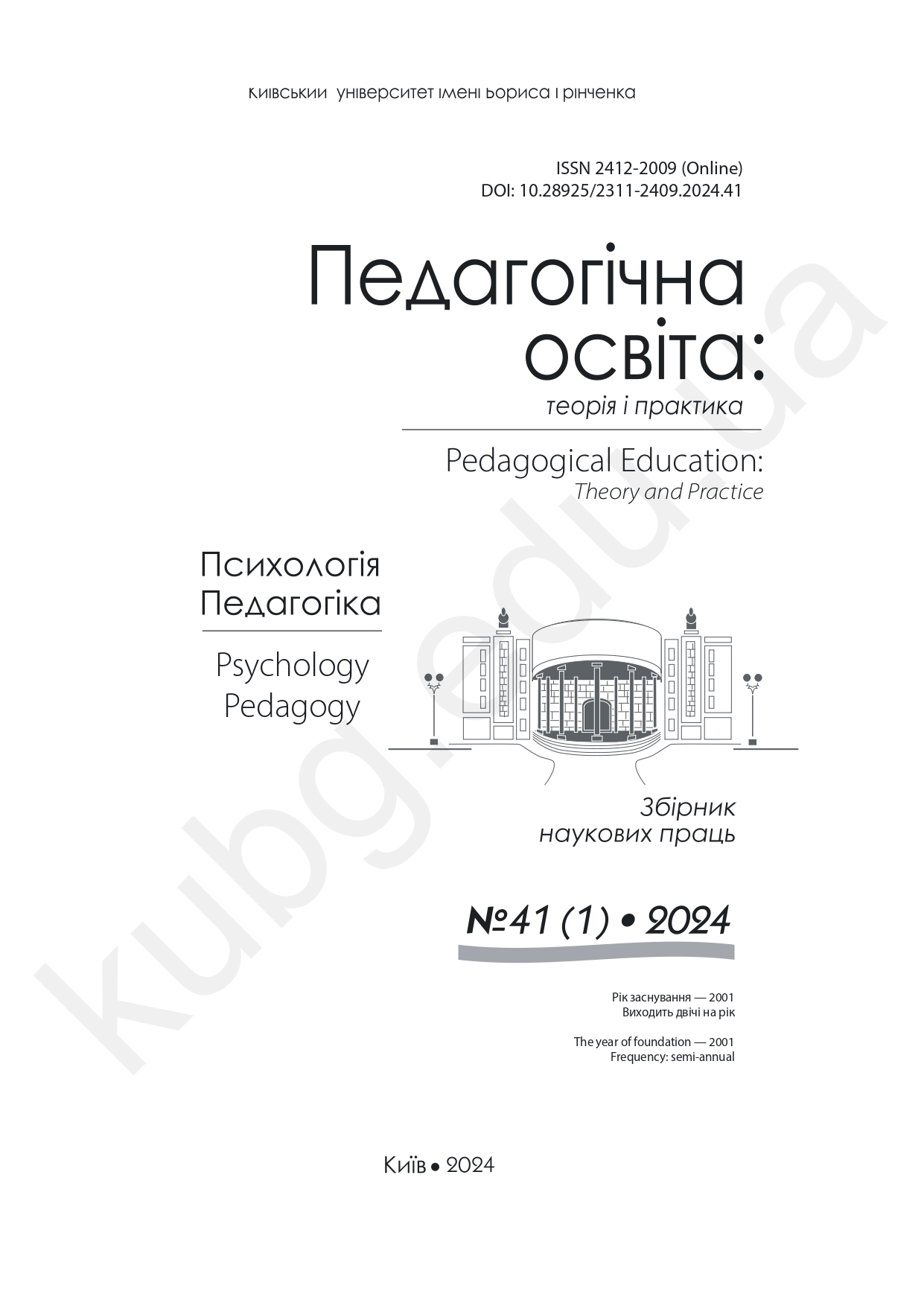Talent-management as an innovative strategy of corporate training and development of personnel of an educational organization
DOI:
https://doi.org/10.28925/2311-2409.2024.411Abstract
t. The article presents the results of a study of the possibilities of introducing an innovative strategy
of corporate training and staff development — talent management - into the educational sphere. A brief
theoretical review of scientific sources on the problem under study has led to the conclusion that talent
management is a human resources strategy that focuses on attracting, developing and retaining the best
employees. It is of particular importance for educational organizations, as the qualifications and experience
of teachers are an important factor in the quality of education received by students. Based on the content analysis
of scientific papers, the author concludes that the implementation of the concept of talent management in an
educational organization involves identifying the key competencies of the organization, creating favorable
working conditions, investing in staff development, and developing a staff motivation system. According to the
author, the implementation of talent management will help to find effective responses to the challenges facing
education: overcoming the skills shortage, improving educational outcomes, taking into account technological
progress, promoting diversity and inclusion, navigating regulatory changes, fostering leadership and succession
planning, and creating sustainable and flexible human capital. An attempt is also made to confirm the author’s
theoretical considerations with the results of a survey of pedagogical and scientific and pedagogical staff of Borys
Grinchenko Kyiv Metropolitan University and the responses of a focus group of educational managers of different
levels who have completed advanced training at the Department of Professional and Higher Education of the
Central Institute of Postgraduate Education of the University of Educational Management. The study has
actualized the need to explore innovative ways of developing talents in the field of education, taking into account
the essential features of the educational sphere, social expectations from the results of its activities, requirements for professionalism and competence of a modern teacher
Downloads
References
Братко М. (2017). Управління професійною підготовкою фахівців в освітньому середовищі університетського коледжу: теорія і практика. / монографія. Камянець-Подільський: «Аксіома». 424 с.
Братко М., Сергєєва Л. (2022). Управління талантами (talant menegement) як актуальна стратегія навчання і розвитку педагогічного персоналу освітньої організації / Професійний розвиток
в умовах цифровізації суспільства: сучасні тренди: матеріали ІІІ науково‐практичної конференції /
наук. ред. О. М. Спірін, О. А. Острянська. Київ — Житомир : НАПН України ДЗВО «Університет
менеджменту освіти», ЖДУ ім. І. Франка 2022. 304 с.
Cappelli, P., & Keller, J. R. (2014). Talent management: Conceptual approaches and practical challenges.
Annu. Rev. Organ. Psychol. Organ. Behav., 2014. №1(1), p. 305–331.
Chinsky R.M. (2020). Evergreen Talent: A Guide to Hiring and Cultivating a Sustainable Workforce. Red
Wheel / Weiser, 208 р.
Collings D.G., Scullion H., Caligiuri P.M. (2020). Global Talent Management. Routledge. 250 p.
Davies, B., Davies, B. (2011). Talent Management in Education (1st ed.). SAGE Publications. 200 p.
Retrieved from https://www.perlego.com/book/861687/talent-management-in-education-pdf (Original
work published 2011)
Garavan, T. N., Morley, M. J., Cross, C., Carbery, R., & Darcy, C. (2021). Tensions in talent: A micro
practice perspective on the implementation of high potential talent development programs in multinational
corporations. Human Resource Management, № 60 (2), p. 273–293.
Michaels E., Handfield-Jones H., & Axelrod, B. (2001). The war for talent. Harvard Business Press, 240 p.
Morley, M. J., Scullion, H., Collings, D. G., & Schuler, R. S. (2015). Talent management: A capital
question. European Journal of International Management, №9(1), p. 1–8.
Senge P. (1994). The Fifth Discipline. The Art and Practice of the Learning Organization. New York:
Doubleday, 413 p
REFERENCES
Bratko M. (2017). Upravlinnia profesiinoiu pidhotovkoiu fakhivtsiv v osvitnomu seredovyshchi
universytetskoho koledzhu : teoriia i praktyka [Management of professional training in the educational
environment of auniversity college: theory and practice]: monohrafiia. Kamianets-Podilskyi: «Aksioma».
s. [in Ukrainian]
Bratko M., Sergeyeva L. (2022). Upravlinnia talantamy (talеnt-menegement) yak aktualna stratehiia
navchannia i rozvytku pedahohichnoho personalu osvitnoi orhanizatsii [Talent Management as an Actual
Strategy of Training and Development of Teaching Staff of an Educational Organization] / Profesiinyi
rozvytok v umovakh tsyfrovizatsii suspilstva: suchasni trendy: materialy III naukovo‐praktychnoi
konferentsii / nauk. red. O. M. Spirin, O. A. Ostrianska. Kyiv — Zhytomyr : NAPN Ukrainy DZVO
«Universytet menedzhmentu osvity», ZhDU im. I. Franka. 304 s. [in Ukrainian]
Cappelli, P., & Keller, J. R. (2014). Talent management: Conceptual approaches and practical challenges.
Annu. Rev. Organ. Psychol. Organ. Behav. №1 (1), p. 305–331. [in English]
Chinsky R.M. (2020). Evergreen Talent: A Guide to Hiring and Cultivating a Sustainable Workforce. Red
Wheel/Weiser, 208 р. [in English]
Collings D.G., Scullion H., Caligiuri P.M. (2020). Global Talent Management. Routledge. 250 p. [in English]
Davies, B., Davies, B. (2011). Talent Management in Education (1st ed.). SAGE Publications. 200 p.
Retrieved from https://www.perlego.com/book/861687/talent-management-in-education-pdf (Original
work published 2011) [in English]
Garavan, T. N., Morley, M. J., Cross, C., Carbery, R., & Darcy, C. (2021).Tensions in talent: A micro
practice perspective on the implementation of high potential talent development programs in multinational
corporations. Human Resource Management, № 60(2), p. 273–293. [in English]
Michaels E., Handfield-Jones H., & Axelrod, B. (2001) The war for talent. Harvard Business Press. 240 p.
[in English]
Morley, M. J., Scullion, H., Collings, D. G., & Schuler, R. S. (2015). Talent management: A capital
question. European Journal of International Management, №9(1), p. 1–8. [in English]
Senge P. (1994).The Fifth Discipline. The Art and Practice of the Learning Organization. New York:
Doubleday. 413 p. [in English]

